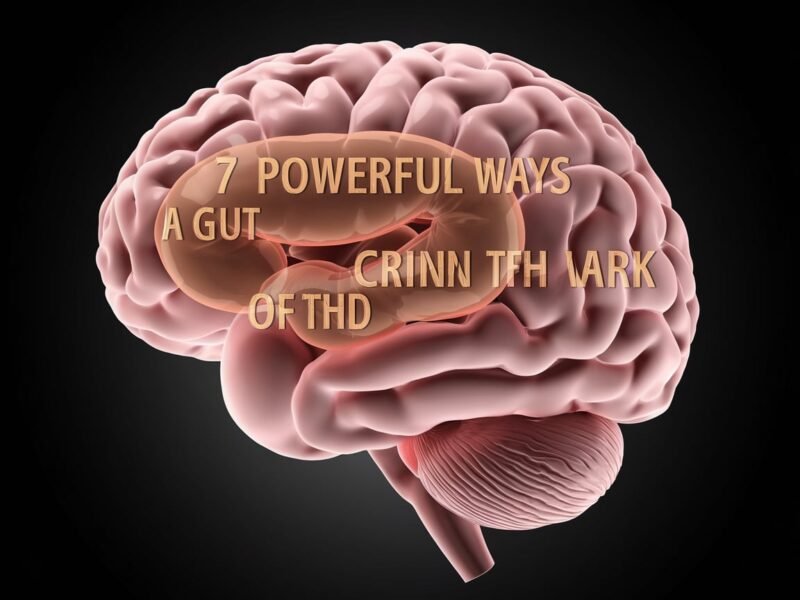Meta Description:
“Discover 10 simple tips for adopting a healthy lifestyle, from nutritious eating and regular exercise to stress management and better sleep. Start making small changes today for a happier, healthier you!”
In today’s fast-paced world, living a healthy lifestyle has become more important than ever. A balanced lifestyle not only enhances your physical health but also positively impacts your mental well-being, energy levels, and even longevity. Yet, with so much information available, it can be overwhelming to know where to start.
The good news is that adopting a healthy lifestyle doesn’t require drastic changes overnight. Small, consistent steps can make a huge difference in the long run. In this guide, we’ll walk you through 10 simple tips for living a healthier, more fulfilling life. Whether you’re looking to improve your diet, get fit, reduce stress, or find a better work-life balance, these actionable tips will help you achieve your health and wellness goals.
1. Prioritize a Balanced Diet

One of the cornerstones of a healthy lifestyle is proper nutrition. What you put into your body directly affects your energy, mood, and overall well-being. A balanced diet includes a variety of whole foods, such as fruits, vegetables, lean proteins, healthy fats, and whole grains. Avoiding processed foods, excessive sugar, and unhealthy fats can help you maintain a healthy weight, boost your immune system, and improve your mental clarity.
Healthy Eating Tips:

- Aim for colorful plates with a variety of nutrient-dense foods.
- Include plenty of fiber-rich foods, like vegetables, legumes, and whole grains.
- Stay hydrated—water is essential for digestion, skin health, and energy levels.
Learn more about healthy eating habits
2. Move Your Body Every Day

Regular physical activity is another essential pillar of a healthy lifestyle. Exercise doesn’t just help you lose weight—it also boosts your mood, improves heart health, strengthens muscles and bones, and enhances cognitive function. The goal is not perfection but consistency.
Exercise Tips:
- Start with simple activities like walking or cycling if you’re new to exercise.
- Include a mix of cardio (like jogging, swimming, or dancing) and strength training (such as weight lifting or bodyweight exercises).
- Find an activity you enjoy, so you’re more likely to stick with it.
3. Get Enough Sleep
It’s easy to underestimate the power of sleep, but it’s just as important as diet and exercise for overall health. Proper sleep helps your body recover, reduces stress, and strengthens your immune system. Aim for 7–9 hours of quality sleep each night.
Sleep Tips:
- Create a bedtime routine that promotes relaxation, such as reading or meditating before bed.
- Limit screen time at least an hour before sleep.
- Keep your bedroom cool, dark, and quiet for the best rest.
Read about the importance of sleep
4. Manage Stress Effectively
Chronic stress is a silent killer. It can lead to numerous health problems, including anxiety, depression, and even heart disease. Finding ways to manage stress is vital for maintaining a healthy lifestyle.
Stress Management Tips:
- Practice mindfulness techniques such as deep breathing, meditation, or yoga to reduce tension.
- Take breaks throughout the day to clear your mind.
- Learn to say no and set healthy boundaries to avoid burnout.
Discover stress management techniques
5. Stay Hydrated
Water is essential for nearly every bodily function, from digestion to temperature regulation. Dehydration can lead to fatigue, poor concentration, and headaches. Aim to drink at least 8 cups (about 2 liters) of water per day, and more if you’re active.
Hydration Tips:
- Carry a reusable water bottle to remind yourself to drink.
- Infuse your water with fruits like lemon, cucumber, or berries to make it more flavorful.
- Include hydrating foods like cucumbers, watermelon, and celery in your diet.
6. Foster Positive Relationships
Healthy relationships are crucial for mental well-being. Surrounding yourself with positive, supportive people can improve your mood, reduce stress, and increase your overall happiness. Whether it’s family, friends, or romantic partners, make time for the people who matter most.
Relationship Tips:
- Make time for meaningful conversations with loved ones.
- Practice active listening and show empathy in your interactions.
- Cultivate relationships that lift you up rather than drag you down.
Find ways to build stronger relationships
7. Practice Gratitude
Gratitude can have a profound effect on your mental and physical health. By focusing on what you’re thankful for, you can improve your mood, reduce stress, and promote a more positive outlook on life.
Gratitude Tips:
- Keep a gratitude journal and write down three things you’re grateful for each day.
- Take a moment to reflect on positive aspects of your life, especially during tough times.
- Share your appreciation with others to build stronger connections.
Explore the benefits of gratitude
8. Avoid Harmful Habits
Habits like smoking, excessive alcohol consumption, or overeating can have detrimental effects on your health. Reducing or eliminating these behaviors can improve your overall wellness and decrease your risk of chronic diseases.
Healthy Habits Tips:
- Gradually cut back on smoking or drinking if you’re trying to quit.
- Opt for healthier alternatives when cravings arise (e.g., herbal teas instead of sugary sodas).
- Seek professional support if you need help breaking harmful habits.
Read more on breaking unhealthy habits
9. Set Realistic Goals
Living a healthy lifestyle requires setting achievable goals. Unrealistic expectations can lead to disappointment and burnout. Whether it’s weight loss, fitness, or mental health, break your goals down into smaller, manageable steps.
Goal Setting Tips:
- Use SMART goals (Specific, Measurable, Achievable, Relevant, Time-bound).
- Track your progress and celebrate small wins.
- Be kind to yourself and adjust goals as needed.
Learn about setting effective goals
10. Embrace a Growth Mindset
Finally, adopt a growth mindset—a belief that your abilities and health can improve with effort and practice. Embrace challenges, learn from setbacks, and focus on continuous improvement.
Mindset Tips:
- View mistakes as learning opportunities rather than failures.
- Cultivate resilience by bouncing back after setbacks.
- Focus on progress, not perfection.
Learn more about cultivating a growth mindset
Conclusion
Living a healthy lifestyle is not about perfection; it’s about making consistent, positive choices that enhance your physical, mental, and emotional well-being. By adopting small, manageable habits—such as eating a balanced diet, staying active, getting enough sleep, managing stress, and nurturing relationships—you can build a sustainable, healthy lifestyle that lasts a lifetime.
Start with one or two changes, and as you grow, add more. Remember, the journey to a healthier you is about progress, not perfection. Stay patient, stay committed, and enjoy the journey toward a happier, healthier life.
Resources:
- CDC – Healthy Living Tips
- NHS – Fitness and Exercise
- Psychology Today – Building Positive Relationships
“Frequently Asked Questions About Healthy Living: Expert Tips and Answers”
1. What are the key components of a healthy lifestyle?
A healthy lifestyle involves balanced nutrition, regular physical activity, adequate sleep, stress management, and maintaining positive relationships. It also includes avoiding harmful habits like smoking and excessive alcohol consumption, while focusing on mental well-being through mindfulness and gratitude.
2. How can I start living a healthier lifestyle?
Start by making small, sustainable changes. Begin with incorporating more fruits, vegetables, and whole grains into your diet, adding 20-30 minutes of physical activity to your daily routine, and prioritizing sleep. Gradually reduce unhealthy habits, and practice mindfulness or relaxation techniques to manage stress.
3. How much exercise do I need for a healthy lifestyle?
For general health, aim for at least 150 minutes of moderate-intensity exercise per week, or 75 minutes of vigorous-intensity exercise. This can include activities like walking, swimming, jogging, or cycling. Additionally, incorporate strength training exercises at least twice a week.
4. How does stress affect my health, and how can I manage it?
Chronic stress can lead to a range of health problems, including heart disease, weight gain, anxiety, and poor sleep. To manage stress, practice relaxation techniques such as meditation, deep breathing, yoga, or spending time in nature. Regular exercise and getting enough sleep also help reduce stress levels.
5. Why is sleep important for a healthy lifestyle?
Sleep is crucial for physical and mental health. It allows your body to recover, regulate hormones, and repair cells. Inadequate sleep can lead to weight gain, mood swings, decreased productivity, and weakened immunity. Aim for 7–9 hours of quality sleep each night to maintain optimal health.



